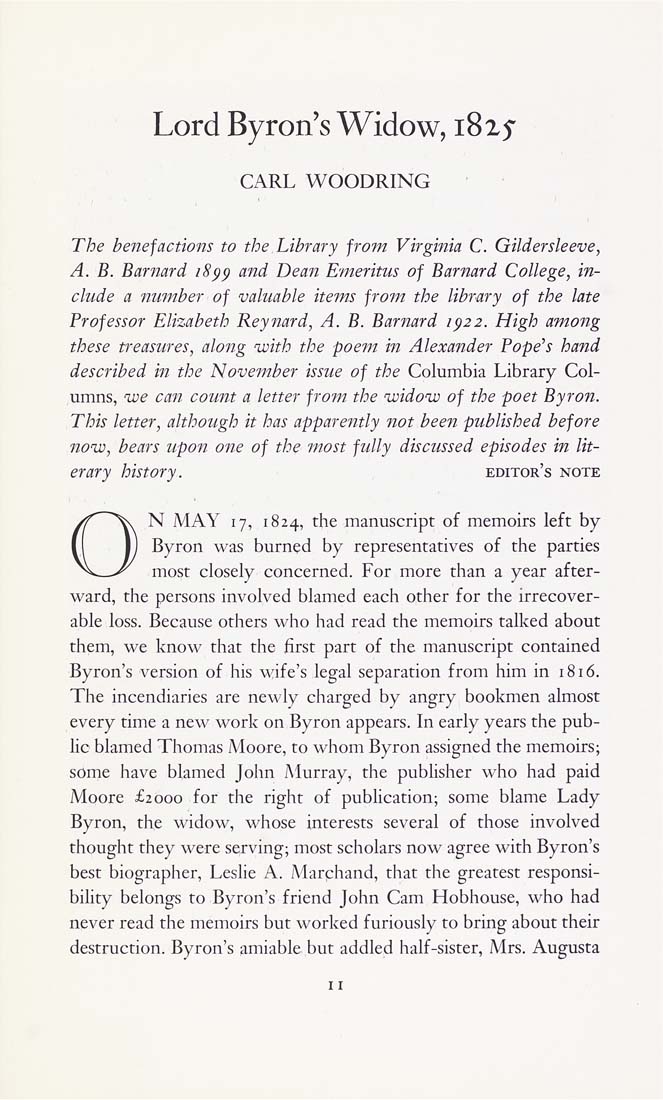Columbia Library columns (v.14(1964Nov-1965May))
(New York : Friends of the Columbia Libraries. )
|
||
|
|
|
|
| v.14,no.3(1965:May): Page 11 |

Lord Byron's Wido'w, 1815- CARL WOODRING The benefactions to the Library from Virginia C. Gildersleeve, A. B. Barnard 18^^ and Dean Emeritus of Barnard College, in¬ clude a number of valuable items from the library of the late Professor Elizabeth Reynard, A. B. Barnard it)22. High among these treasures, along with the poem in Alexander Pope's hand described in the November issue of the Columbia Library Col¬ umns, we can count a letter from the widow of the poet Byron. This letter, although it has apparently not been published before now, bears upon one of the most fully discussed episodes in lit¬ erary history. editor's note N MAY 17, 1824, the manuscript of memoirs left by Byron was burned by representatives of the parties most closely concerned. For more than a year after¬ ward, the persons involved blamed each other for the irrecover¬ able loss. Because others who had read the memoirs talked about them, we know that the first part of the manuscript contained Byron's version of his wife's legal separation from him in 1816. The incendiaries are newly charged by angry bookmen almost every time a new work on Byron appears. In early years the pub¬ lic blamed Thomas Moore, to whom Byron assigned the memoirs; some have blamed John Murray, the publisher who had paid Moore £2000 for the right of publication; some blame Lady Byron, the widow, whose interests several of those involved thought they were serving; most scholars now agree with Byron's best biographer, Leslie A. Marphand, that the greatest responsi¬ bility belongs to Byron's friend John Cam Hobhouse, who had never read the memoirs but worked furiously to bring about their destruction. Byron's amiable but addled half-sister, Mrs. Augusta |
| v.14,no.3(1965:May): Page 11 |







